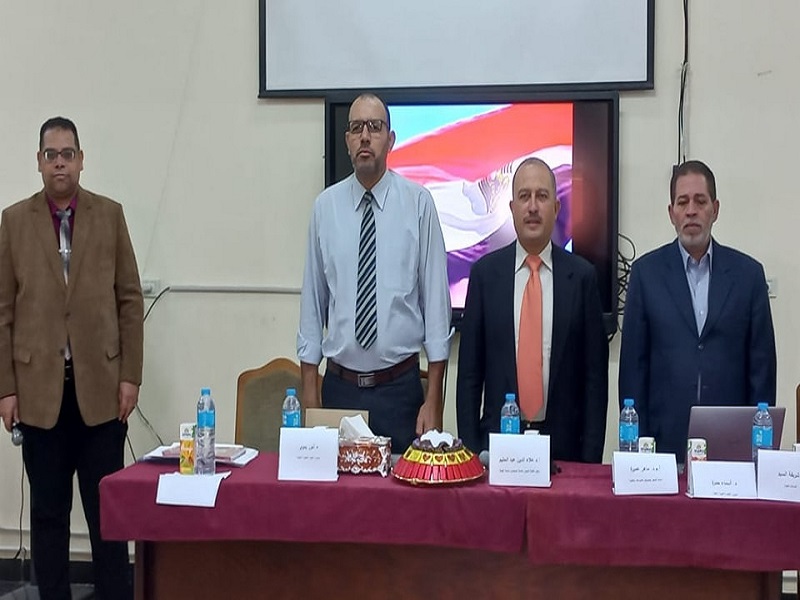
Celebration of the Faculty of Education of International Day of the Arabic Language
In a celebration full of creativity and love of the Arabic language, sponsored by Prof. Dr. Mahmoud El-Meteini, President of the University, Prof. Dr. Abdel Fattah Saoud, Vice President for Education and Student Affairs, Prof. Dr. Mohamed Ayman Saleh, Vice President for Postgraduate Studies and Scientific Research, Prof. Dr. Ghada Farouk, Vice President for Community Service and Environmental Development, and sponsored by Prof. Dr. Hazem Rashid, Dean of the Faculty, Prof. Dr. Safaa Shehata, Vice Dean for Education and Student Affairs, Prof. Dr. Alaa El Din Abdel Halim, Vice Dean for Community Service and Environmental Development, Prof. Dr. Hassan Abdel-Maqsoud, Head of the Arabic Language Department at the Faculty, The Faculty of Education at Ain Shams University, in partnership with the Department of Arabic Language and Islamic Studies, organized a celebration of the International Day of the Arabic Language, in partnership with the Story Club in Cairo, the meeting witnessed a scientific symposium entitled: (The Arabic language between the roots of the past and the runways of renewal to enhance the cultural identity of society) Prof. Asst. Dr. Maher Amira, Dr. Anwar Ahmed Badawi, and Dr. Asma Jamal Hamza from the Arabic Language Department, and the symposium was hosted by Mrs. Amal Zakaria, human development trainer, Mrs. Ola Karim Wasfi, an expert in international schools and an Arabic language teacher. Sharifa Al-Sayed, the great poet. The celebration also included student participation from the faculty in the fields of poetry, recitation, story, essay, voice dubbing and singing. The meeting was honored by the presence of the members of the Board of Directors of the Story Club in Cairo. The ceremony was presented and coordinated by: Prof. Asst. Dr. Muhammad Al-Taher, assistant professor of linguistics in the department, and the organizing committee included: Dr. Amira Badawi, Dr. Hind Allam and Dr. Omnia Elasas.
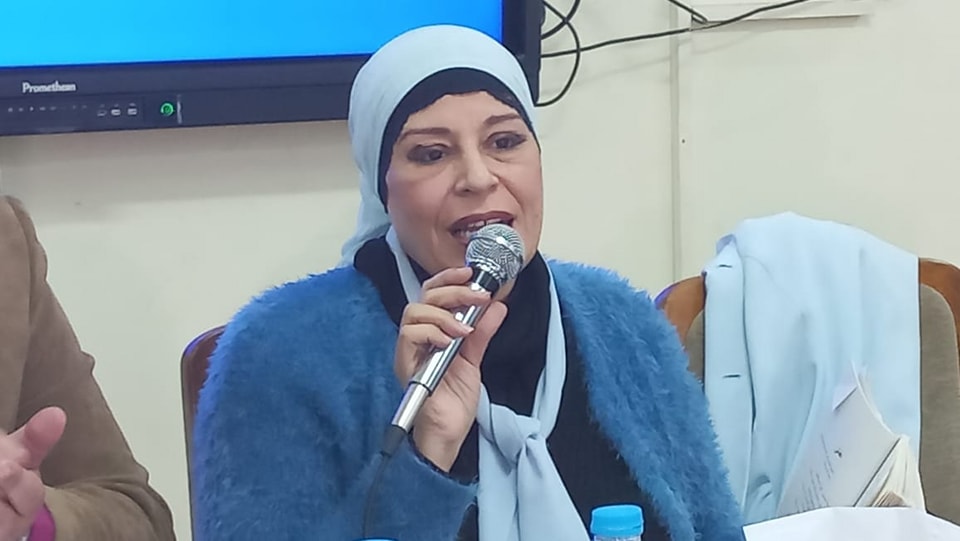 |
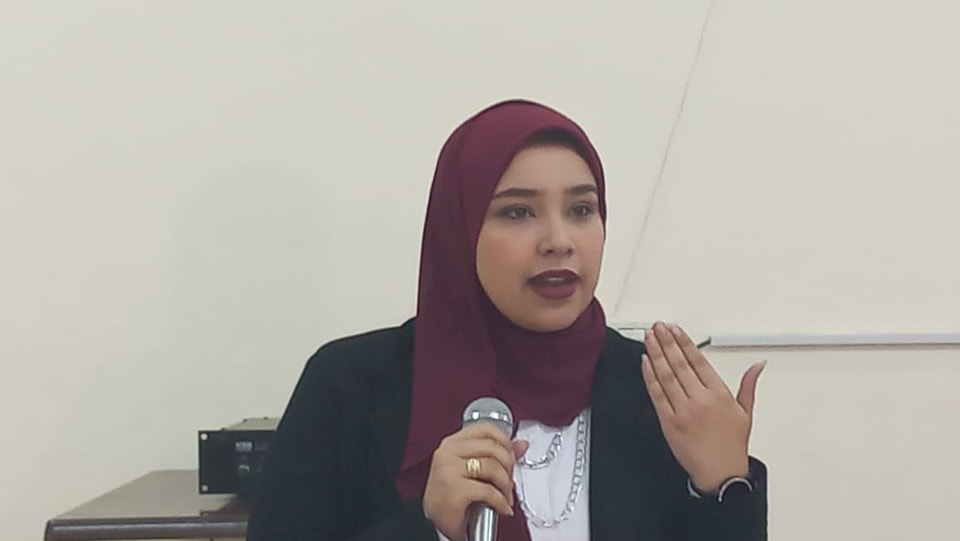 |
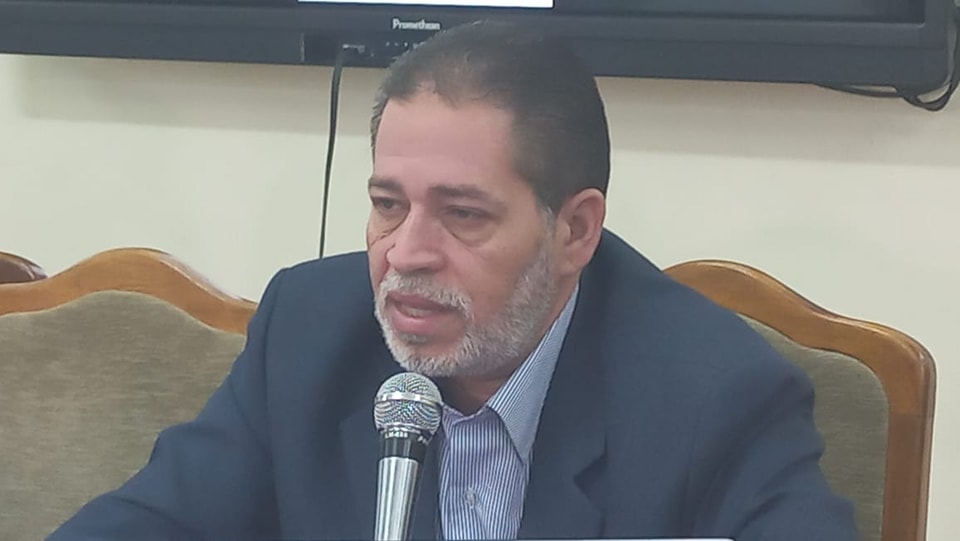 |
||
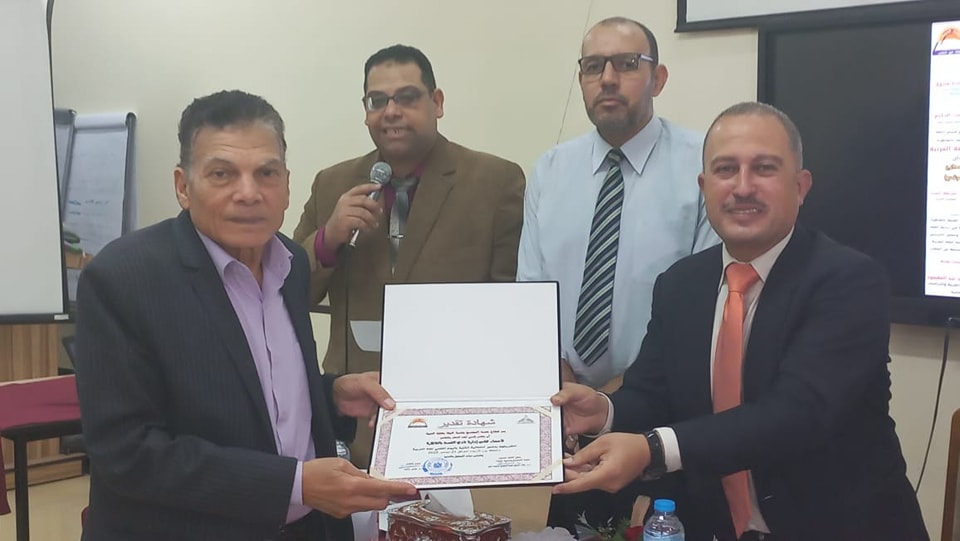 |
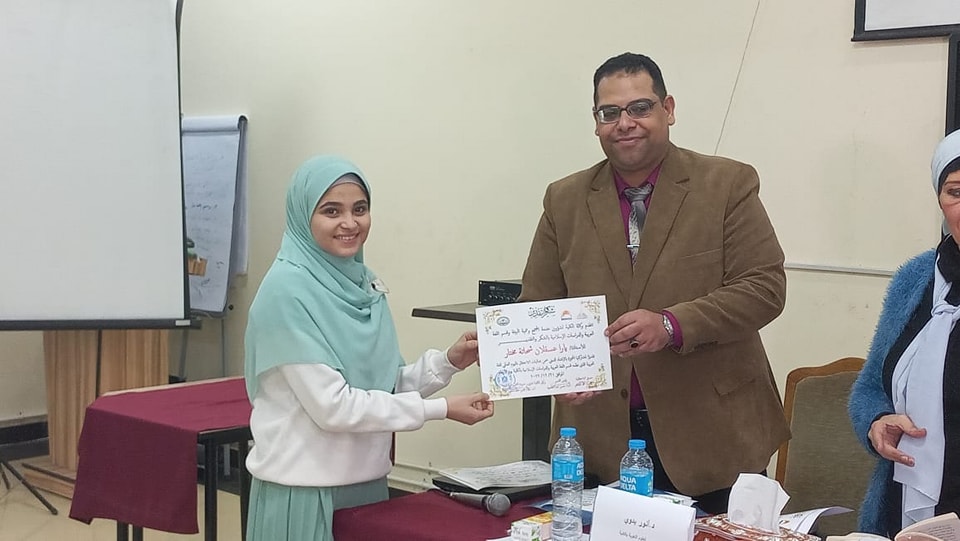 |
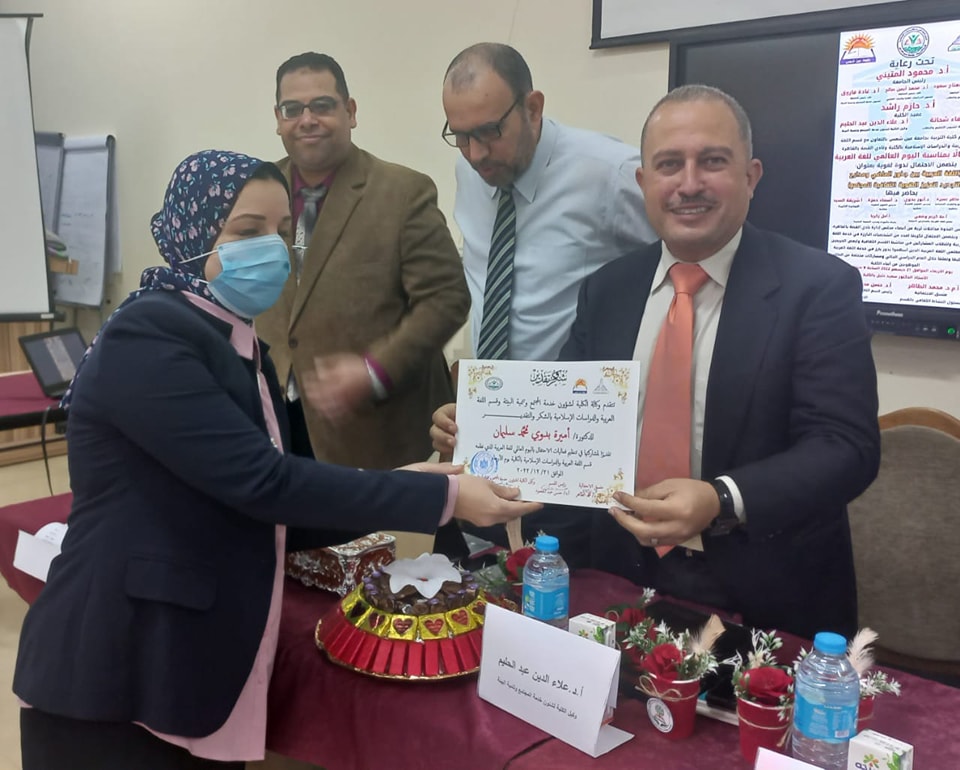 |
||
The Faculty represented by His Excellency Prof. Dr. Aladdin Abdel Halim, Vice Dean for Community Service and Environmental Development, honored Professors, faculty staff who participated in the symposium, as well as the distinguished guests participating,
The male and female students participating in the celebration were honored as well as the winners of literary creativity awards in the competition organized by the Department of Arabic Language and Islamic Studies at the Faculty, and the faculty presented a certificate of appreciation and thanks to the Story Club in Cairo, in appreciation of its efforts in serving the Arabic language and advancing the creative art of storytelling. The symposium that took place during the celebration confirmed the following:
1- Preserving Arabic is preserving the identity and personality that distinguished the people of this nation throughout its history, and it is an integrated system of values, customs, and high morals that distinguished these societies.
2- The richness of the Arabic language reflects its ability to coexist with various languages and civilizations for more than two thousand years, and that the choice of the Arabic language as the language of the Qur’an was not only for reasons related to race or gender, but for deeper reasons related to the ability of Arabic to achieve the desired communication with human beings. Therefore, it imposed its authority with its grace, and the people of this country took it as their tongue and replaced it with their own languages, which is a basic source of the sources of unification of this Arab and Islamic nation.
3- The Arabic language is not in isolation, but it is renewable, flexible, and interacting with other languages without alienating it or obscuring its identity.
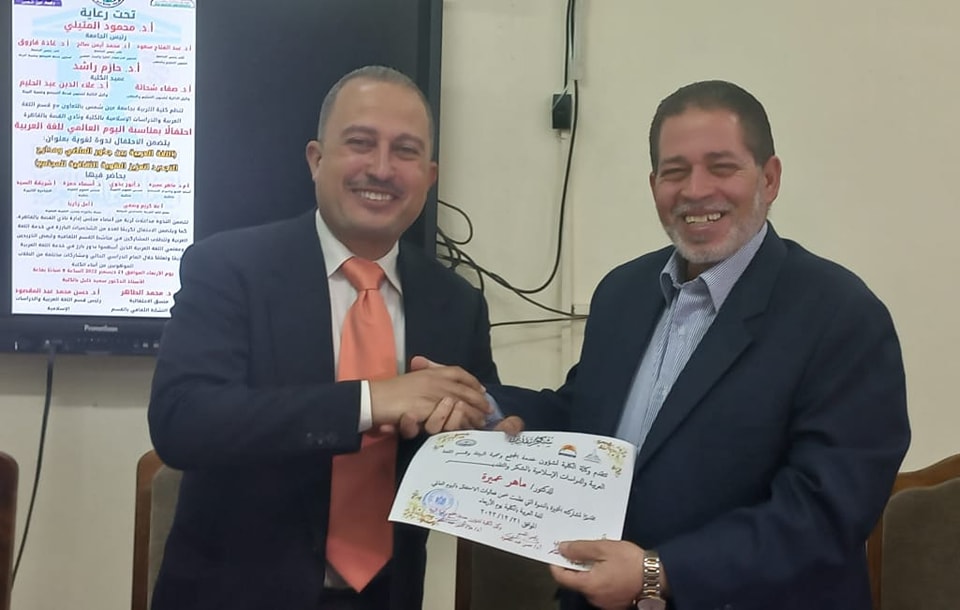 |
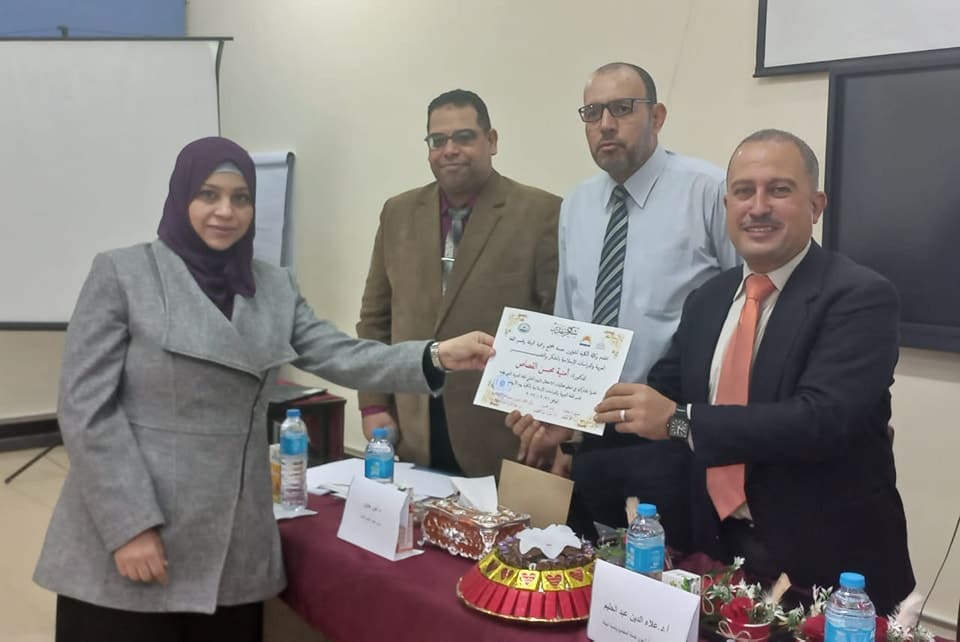 |
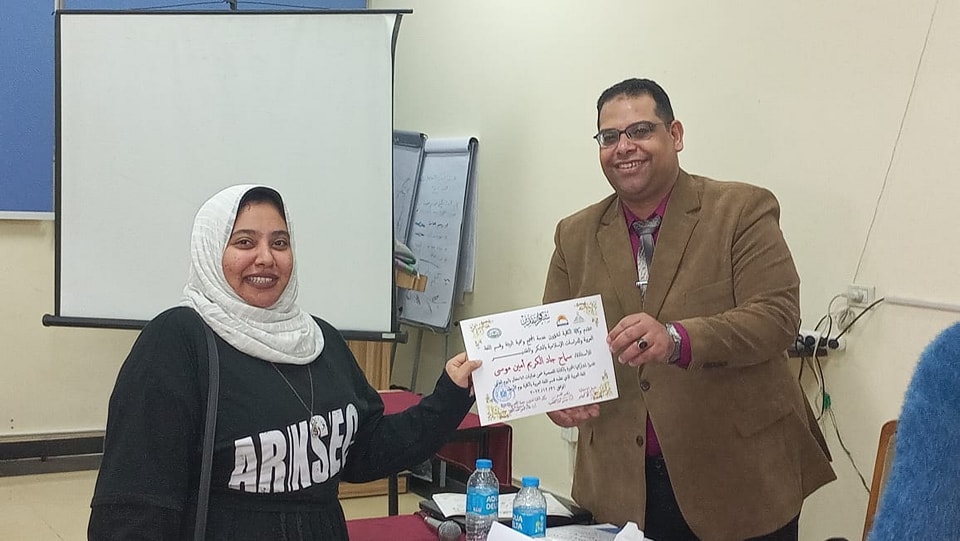 |
||
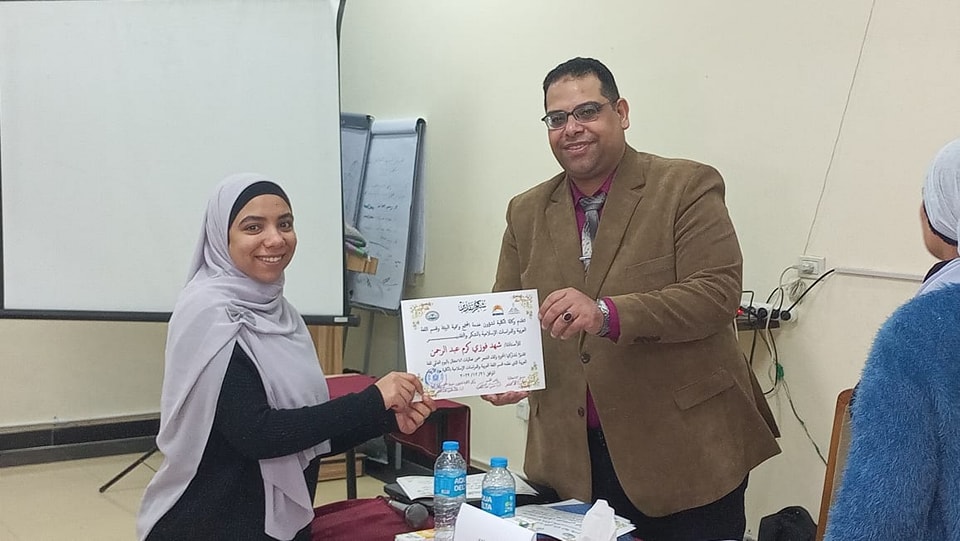 |
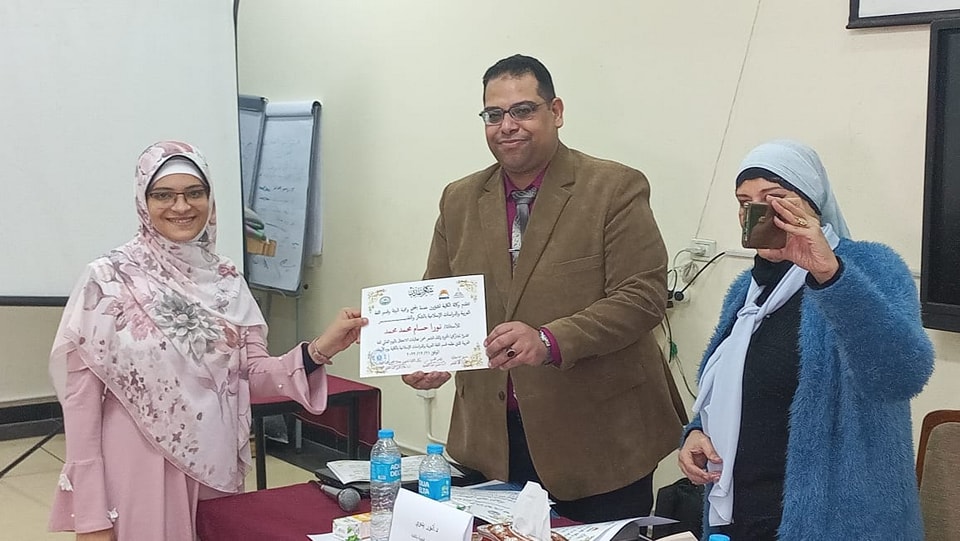 |
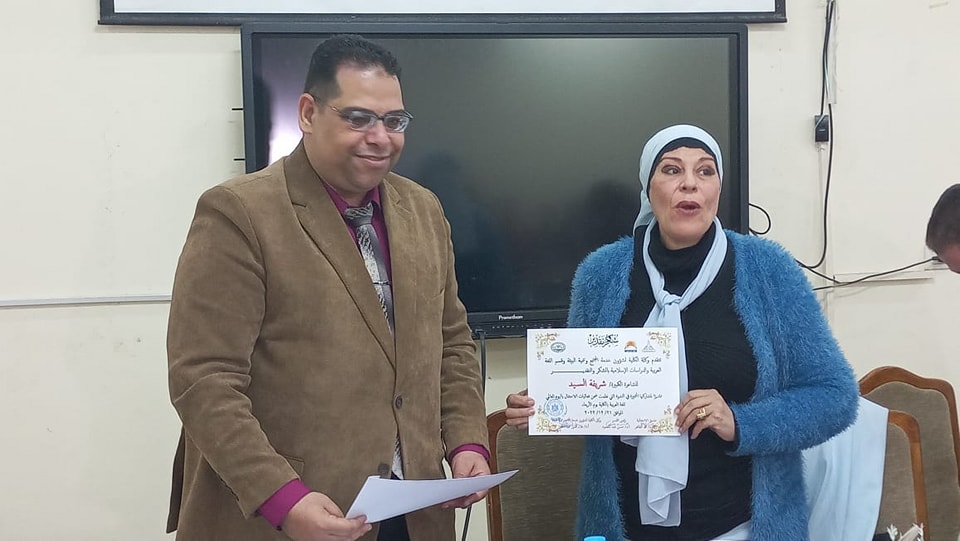 |
||
The symposium also recommended the following:
1- The need to sharpen the required affiliation with this language and pride in it among the youth of society in particular.
2- Eliminating the means of alienating the language and obscuring its identity, especially when replacing foreign vocabulary with it or writing it in Latin letters.
3- Confronting the danger of increasing the gap between classical and colloquial Arabic.
4- Purifying the Arabic dictionary from words that are no longer used, and it is strange to include new words in our modern linguistic dictionary.
5- The call for the completion of the historical dictionary of the Arabic language.
6- Supporting Arabic scientific terms in the media, culture and education, and replacing them with foreign terms.
7- Calling on the media and cultural and educational institutions to be supportive of eloquent usage, as was the case not so long ago, and to distance themselves from the current methods.
8- Directing more support for the care of gifted male and female students and presenting them to society as models to be proud of in the light of the mission of the college and the university in linking the university with the community, upgrading it, and developing it culturally and scientifically.
The participants in the meeting also expressed their thanks and appreciation to:
1- The initiative of the Ministry of Immigration, “Speak Arabic”.
2- The efforts of the Ministry of Education to update Arabic language curricula, support reading comprehension skills, and interest in developing teachers' language skills, making them an essential component of recruitment and promotion within educational institutions.
3- Efforts of the Arabic Language Academy in Cairo in developing scientific terminology and completing the Great Dictionary project.
.svg)



